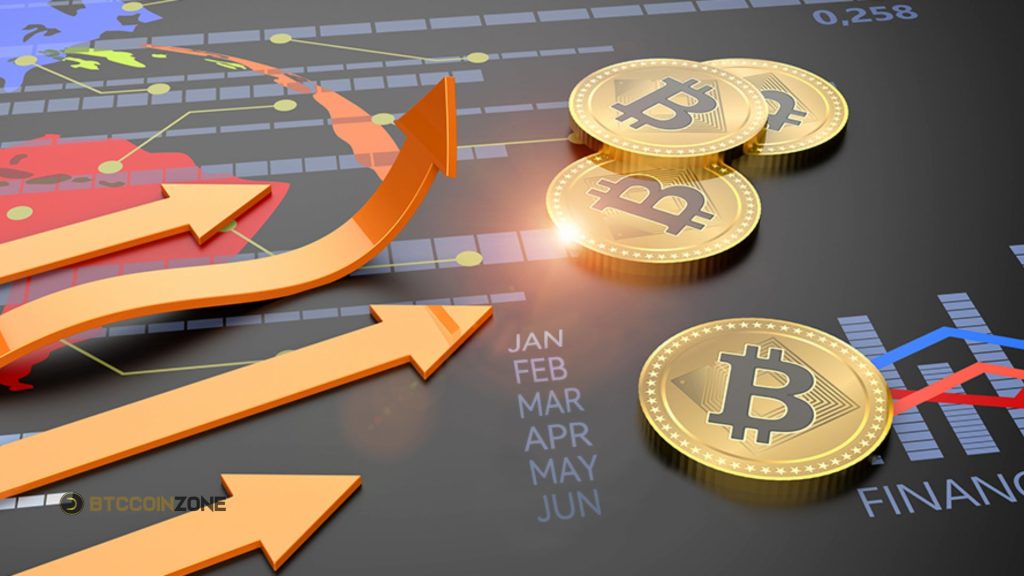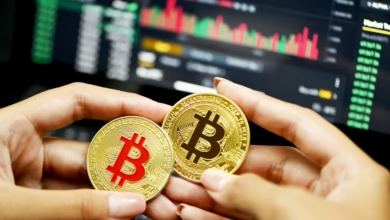Bitcoin Risk Factors and Opportunities and Challenges

Bitcoin Risk Factors: Investors, technologists, and governments from all corners of the globe have taken an interest in Bitcoin, the pioneering cryptocurrency. Bitcoin, created by the anonymous Satoshi Nakamoto in 2009 as an experiment in digital currency, has grown into an asset class with a market value of several trillion dollars, posing a threat to established financial institutions. Bitcoin is a symbol of financial innovation that has, for some, paid off handsomely, but it is not without its dangers. Investors, traders, and fans must grasp the pros and cons of this new commodity if they wish to traverse its complexity.
Risk Factors of Bitcoin
Investing in Bitcoin is dangerous because of its extraordinary price volatility. Variegated government attitudes contribute to regulatory uncertainty, which in turn increases risk. Theft and hacking are examples of security concerns. There is also the possibility of market manipulation and technical hazards, such as scalability problems. Environmentalists are also worried about Bitcoin because of its high energy use.

Extreme Volatility
Bitcoin has great profits but also high price volatility. Bitcoin values can climb to record highs and then crash fast. In 2021, Bitcoin rose from $30,000 in January to $69,000 in November, then lost over 50% of its value. Investors inexperienced with bitcoin markets may find this volatility unsettling. Market sentiment, macroeconomic conditions, speculation, and regulatory news create price movements. Prepare for big price swings and manage your investments.
Regulatory Uncertainty
Regulatory uncertainty threatens Bitcoin. Global governments struggle to regulate cryptocurrencies, resulting in patchwork laws. Some nations have legalized Bitcoin, while others have prohibited it. China banned cryptocurrency transactions and mining in 2021, lowering BitcoinBitcoin’s El Salvador; however, it legalized Bitcoin. The regulatory environment scares investors because government policy changes could affect BitcoinBitcoin’sand acceptability. The SEC is also considering BitcoinBitcoin’s status. Securities restrictions may increase BitcoinBitcoin’s status and reporting, limiting investor interest.
Security Risks
The platforms and exchanges where Bitcoin is traded are insecure, yet its blockchain is secure. Cyberattacks, hacking, and fraud have cost Bitcoin investors billions. The 2014 Mt. Gox hack stole over 850,000 Bitcoins, and the 2016 Bitfinex attack grabbed 120,000. Private key security is important for Bitcoin holders and exchange hacks. Bitcoin transactions are irrevocable, so lost or stolen private keys mean lost Bitcoin. Investors must safeguard their wallets and use secure channels.
Technological Risks
Bitcoin rests on its blockchain and sophisticated technology. It is secure but risky. A 51% attack, when one entity controls over half of the network’s power, might interrupt blockchain transactions. A rare attack on BitcoinBitcoin’s established network is theoretical. Bitcoin has scalability issues, especially amid high demand. Due to rising transaction fees and long confirmation times, Bitcoin is less suitable for daily use. Scalability solutions like Lightning Network are being developed but not extensively used.
Environmental Concerns
Bitcoin mining uses a lot of processing power and electricity. As Bitcoin mining grows, environmental concerns have been highlighted, especially in fossil fuel-dependent regions. Bitcoin mining may use as much electricity as some small countries, causing carbon emissions and sustainability concerns. BitcoinBitcoin’s is threatened by environmental issues despite efforts to switch to renewable energy sources. Government measures to reduce Bitcoin mining’mining’snmental impact could hurt the industrindustry’sability.
Benefits of Bitcoin Risk
Bitcoin allows users to be financially independent of governments and banks through its decentralized nature. In addition to protecting you from inflation, it also has the potential to yield substantial returns. With its blockchain technology, Bitcoin guarantees transparency, facilitates cheap and fast international transactions, and is a safe digital asset that is always improving thanks to technology advancements.

Decentralization and Financial Freedom
Decentralization is a big Bitcoin benefit. No central bank or government controls Bitcoin transactions or supply. Bitcoin holders avoid central banks’ banks’ionary money printing with decentralization. Bitcoin allows financial independence and global access in countries with unstable currencies or capital controls. It can transit borders without banks, rescuing Venezuelans and Zimbabweans from high inflation. Bitcoin is a good hedge against fiat currencies because politics and economics don’t ddon’te it.
Potential for High Returns
Bitcoin is popular due to its potential to outperform traditional investments. Bitcoin has seen many bull markets, rising from a few pennies to approximately $69,000 in November 2021. Bitcoin is fickle, but early investors who remained on have made huge gains. Bitcoin is a profitable long-term investment since it has generally risen even after major price corrections. Bitcoin is seen as a store of value, comparable to digital gold, whose price may rise as demand for scarce digital assets rises.
Transparency and Security
Using a public blockchain, Bitcoin records transactions. Anyone may track Bitcoin transactions on this transparent blockchain. Traditional bank-based banking systems have never been this transparent. BitcoinBitcoin’sgraphy increases security and openness. Decentralized blockchains make it difficult for one person to modify transaction data or disrupt the system. BitcoinBitcoin’sof Work (PoW) consensus mechanism prevents attacks by forcing miners to solve difficult math puzzles to validate transactions.
Hedge Against Inflation
Bitcoin hedges inflation due to its fixed supply. Central banks can print unlimited fiat currencies, but only 21 million Bitcoins will be mined. Many investors consider Bitcoin as a tool to hedge against currency devaluation when governments worldwide adopt expansionary monetary policies, especially in response to economic crises like the COVID-19 epidemic. BitcoinBitcoin’sion may boost demand as individuals seek inflation-resistant assets. Although unpredictable, bitcoinbitcoin’serm scarcity may make it a good investment like gold.
Innovative Payment Method
Bitcoin may be used for many transactions, making it a speedy, low-cost alternative to established payment systems. Bitcoin transactions can happen 24/7 without oversight. Bitcoin makes cross-border transactions in minutes, compared to days and high bank costs. BitcoinBitcoin’s so-peer technology allows transactions between participants without banking institutions. Bitcoin can help people engage in the global economy in poor countries without banking infrastructure.
In Summary
Significant advantages ofBitcoinn include decentralisation, financial independence, and the possibility of large gains. Due to its security and transparency, itt is a desirable substitute for established financial institutiony, and its set supply makes it a desirable inflation hedge. However,t there are also significant hazards associated with Bitcoin, such as high volatility, ambiguous regulations, security flaws, and environmental issues.
When using Bitcoin, investors and consumers need to be aware of the risks as well as the rewards. Bitcoin Risk Factors: Even while it still has revolutionary potential and is a valuable asset, certain obstacles may affect its acceptance and worth in the future. Those who adopt a balanced strategy and acknowledge both the benefits and hazards associated with Bitcoin will be in the best position to handle this ever-evolving market as it continues to develop.
Also Read: Bitcoin Payments Accepted Growing digital economy trend




